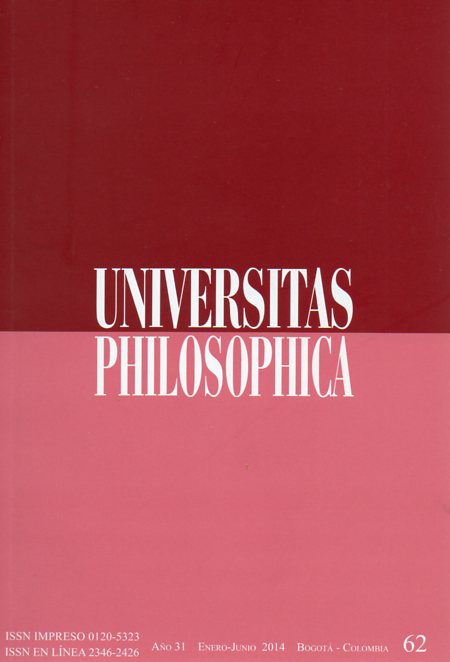Abstract
El artículo se propone ofrecer un acercamiento a la concepción de filosofía que subyace al proyecto de una hermenéutica de la facticidad elaborado por Martin Heidegger entre 1919-1923. Esta aproximación se lleva a cabo a través del desarrollo que en la constitución de tal proyecto tiene el fenómeno de la ruina. La centralidad que este ocupa en el desarrollo temprano del pensamiento de Heidegger y, particularmente, en el curso del semestre de invierno de 1921/22, que lleva por título Interpretaciones fenomenológicas sobre Aristóteles. Introducción en la investigación fenomenológica, permite hacer comprensible el sentido que para el joven Heidegger constituye la tarea de la filosofía en esta temprana etapa como hermenéutica de la facticidad.This journal is registered under a Creative Commons Attribution 4.0 International Public License. Thus, this work may be reproduced, distributed, and publicly shared in digital format, as long as the names of the authors and Pontificia Universidad Javeriana are acknowledged. Others are allowed to quote, adapt, transform, auto-archive, republish, and create based on this material, for any purpose (even commercial ones), provided the authorship is duly acknowledged, a link to the original work is provided, and it is specified if changes have been made. Pontificia Universidad Javeriana does not hold the rights of published works and the authors are solely responsible for the contents of their works; they keep the moral, intellectual, privacy, and publicity rights.
Approving the intervention of the work (review, copy-editing, translation, layout) and the following outreach, are granted through an use license and not through an assignment of rights. This means the journal and Pontificia Universidad Javeriana cannot be held responsible for any ethical malpractice by the authors. As a consequence of the protection granted by the use license, the journal is not required to publish recantations or modify information already published, unless the errata stems from the editorial management process. Publishing contents in this journal does not generate royalties for contributors.


